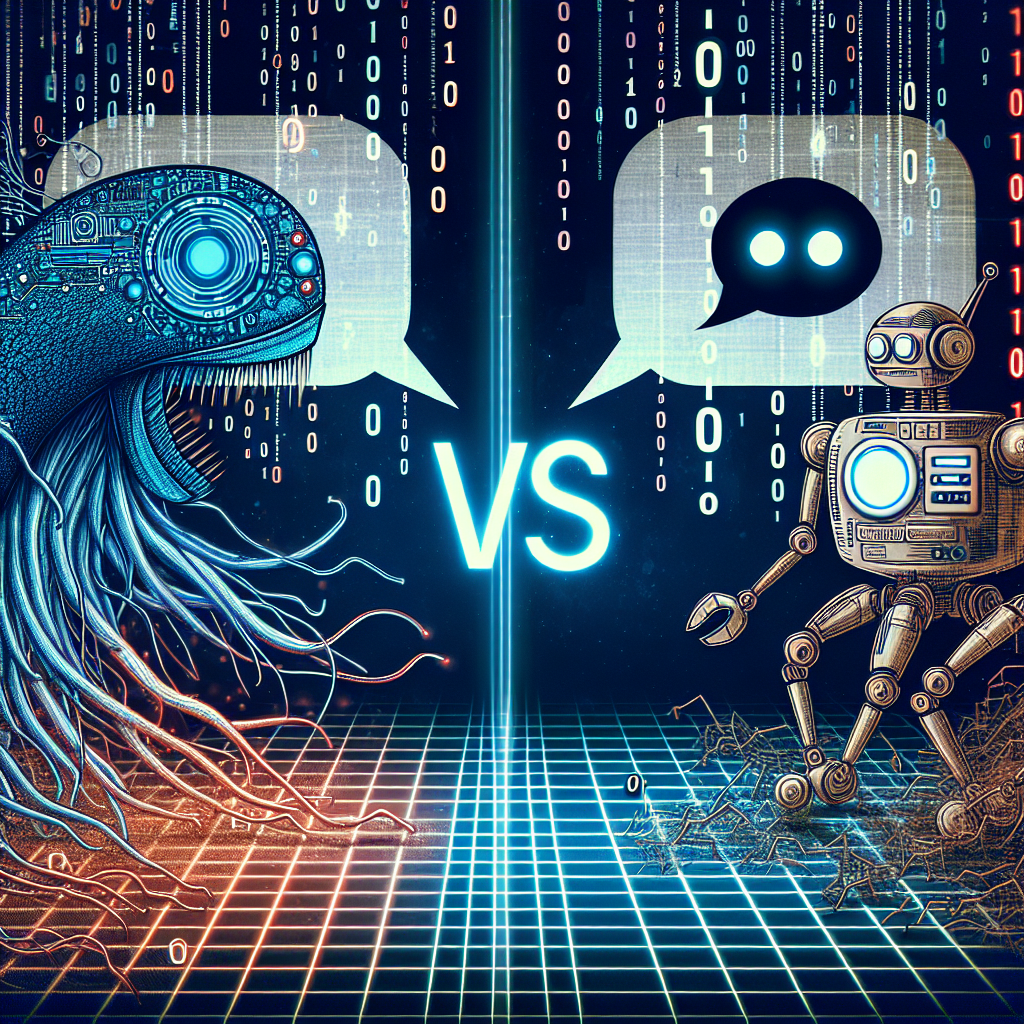In the fast-paced world of artificial intelligence (AI), the quest for superior conversational agents has intensified. Two prominent players in the field, DeepSeek and ChatGPT, have emerged as the foremost contenders for meeting our conversational needs. Both systems promise to deliver engaging, informative, and human-like interactions, but how do they stack up against each other? This article delves into the intricacies of DeepSeek and ChatGPT, exploring their capabilities, strengths, and potential applications.
Understanding the Players
DeepSeek
DeepSeek harnesses advanced natural language processing (NLP) techniques, leveraging vast datasets and sophisticated algorithms to generate coherent conversations. Launched with a focus on specific industries such as customer service and healthcare, DeepSeek excels at context-aware responses and the ability to retrieve information from a wealth of sources. Its unique selling propositions include:
-
Contextual Awareness: DeepSeek is designed to grasp the subtleties of conversations, allowing it to remember previous interactions and maintain continuity. This feature is particularly valuable in sectors like customer support, where understanding a customer’s history can lead to more effective assistance.
-
Domain-Specific Knowledge: By being tailored for particular industries, DeepSeek incorporates specialized knowledge and jargon, making it a go-to solution for businesses looking to provide seasoned expertise in their interactions.
- Integration with External Databases: DeepSeek can interface with various data sources, enabling it to deliver real-time information and updates. This capability is crucial for industries such as finance and healthcare, where timely data can significantly impact decision-making.
ChatGPT
On the other hand, ChatGPT, developed by OpenAI, has garnered widespread acclaim for its versatility and ease of use. Its engaging and human-like conversational abilities have made it a favorite for both casual users and businesses. Key features of ChatGPT include:
-
General Purpose Capability: Unlike DeepSeek, ChatGPT isn’t restricted to specific industries. It can engage in a wide range of topics, from simple chit-chat to complex technical discussions, making it an all-in-one solution for various conversational needs.
-
User-Friendly Interface: ChatGPT boasts an intuitive user interface and seamless interaction experience that appeals to users of all skill levels. Whether it’s for casual interactions or integrated functionalities in applications, ChatGPT is easy to access and use.
- Continuous Improvement: Backed by a strong research foundation, ChatGPT benefits from regular updates and enhancements based on user feedback and advancements in AI research. This commitment to evolution keeps it at the forefront of conversational AI technology.
Head-to-Head Competition
When comparing DeepSeek and ChatGPT, it’s essential to highlight the areas where they excel, as well as their limitations.
Conversational Depth
DeepSeek’s strength lies in its ability to engage in context-rich dialogues. The model is equipped to handle follow-up questions and maintain thread continuity over longer conversations. However, users might find ChatGPT superior in engaging discussions that require creative thinking or nuanced responses, as it has been designed to mimic human thought patterns more closely in diverse contexts.
Knowledge and Expertise
While DeepSeek thrives on domain-specific knowledge, providing industry-relevant answers, ChatGPT’s generalistic approach allows it to cover a plethora of topics without deep expertise. Users looking for detailed explanations and precise information in specialized fields might lean towards DeepSeek, while those wanting broad-ranging discussions might prefer ChatGPT.
Accessibility and Use Cases
ChatGPT’s versatility makes it suitable for various applications, including educational tools, entertainment, content generation, and casual conversation. DeepSeek, conversely, positions itself strongly in business applications, particularly customer relations, where tailored knowledge and data retrieval are paramount.
The Future of Conversational AI
As AI technology continues to evolve, the future of conversational agents like DeepSeek and ChatGPT lies in their ability to learn from interactions, deliver personalized experiences, and seamlessly integrate into users’ lives. The competition will likely drive innovations that enhance their capabilities, ensuring that they can cater to a wide range of conversational needs.
For businesses and consumers alike, the choice between DeepSeek and ChatGPT will ultimately depend on specific needs and contexts. While DeepSeek excels in specialized domains with its industry focus, ChatGPT appeals to a broader audience seeking diverse interactions. No matter which AI conversational agent one chooses, the potential for transformation in communication is palpable.
Conclusion
The battle between DeepSeek and ChatGPT signifies not merely a clash of technologies but rather an exploration of how we, as users, wish to communicate in this digital age. As these platforms continue to grow and adapt, the stakes will remain high, ensuring that the evolution of conversational AI remains an exciting frontier in technology.

